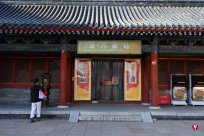Minister of Health Wang Yikang said that about 200 in the last four weeks last year, about 200 people from China were infected with crown disease, accounting for less than 5 % of the input cases in Singapore;Only one person arrived in China.
Since the beginning of the year, there have been no severe patients with coronary diseases from China, and new variant strains with stronger toxicity have not been detected. Therefore, there is no need to adjust epidemic prevention measures.
In the past month, a new wave of crown disease has been outbreak in China, but in Singapore's input cases and intensive cases, only a small part of Singapore has entered China.
Minister of Health Wang Yikang issued a statement on how Singapore responded to the development of global crown disease on Monday (January 9) on Monday (January 9).He said that in the last four weeks of last year, about 200 people from China were infected with crown diseases, accounting for less than 5 % of the input cases in Singapore; one of the seven severe input cases arrived from China.
He believes that this is because since the outbreak of the epidemic, the number of people who have traveled to and from the new and China have remained at a low level; and Singapore requires all entryrs to complete the vaccine vaccination, and those who have not completed the vaccination must be a negative test certificate.
Minister of Transport Yi Huaren also explained how Singapore restored aviation connections safely and orderly when he issued a statement of the Minister.He revealed that the flights to and from Singapore and China have increased from 25 times at the end of October last year to 38 times, but less than 10 % before the epidemic.
In terms of the number of passengers, 700 to 1,000 people arrived in China every day, accounting for only 1 % to 1.5 % of the total number of daily arrival in Changi Airport.
Wang Yikang said that Singapore's border epidemic prevention measures are not as fully open as most countries in Asia, nor, or as Japanese, Canada, and some EU countries.It is neither the strictest, nor the most loose.
He gives an example, if Singapore requires all entryrs from China to test before conducting pre -test, then people who enter the country with more regions with more confirmed cases and severe cases, and local community places that may be conducive to virus transmission must also be implemented.Similarly."When Singapore experiences another wave of epidemic, how will other countries and regions treat passengers in Singapore?"
Wang Yikang emphasized that the new strain may originate from any country or region, so monitoring new strains requires effective global monitoring systems.The centers of disease prevention and control in various cities in China are also actively monitoring new strains and upload the latest virus genome sequences every week.
Analysis results show that the mainstream strains, BA.5.2 and BF.7, which are currently spread in China, have been discovered in Singapore and other regions a few months ago, and more than 650 Omikon subtypes have been detected around the world.The strain.
If the new poison strain is immune to escape, Singapore may restart strict control measures
Wang Yikang admits that the most concerned about new strains that are more dangerous and unknown, and how to protect the medical system.
If the new poison strains have the ability to escape from immune escape or have stronger infectious power, Singapore may have to restart strict border management measures, entry -owner isolation policies, and the number of social gatherings, until the development of effective new vaccines.
Wang Yikang reminded that with the increase in cases of new strains and the increasing cases of infection, a new wave of epidemic will have in Singapore.In addition to strengthening global monitoring and implementing border control measures, the best defense is to meet the latest vaccination requirements.
As of December 31st last year, about 60 % of the 18 -year -olds have reached the latest vaccination requirements, with an average of 13,000 vaccines per day.
Wang Yikang said that the government's anti -epidemic cross -department working group will continue to evaluate the epidemic, and make new measures for adjustment or implementation when necessary. Any response measures must be based on scientific evidence and data.
New Prime Minister Li Xianlong also posted on Facebook, calling on the public to continue to perform social responsibility during the Lunar New Year and maintain safety."If the epidemic continues to maintain stability, we are expected to relieve the final epidemic prevention restriction and enter the normal state after the epidemic."
Congress continues to meet today.



